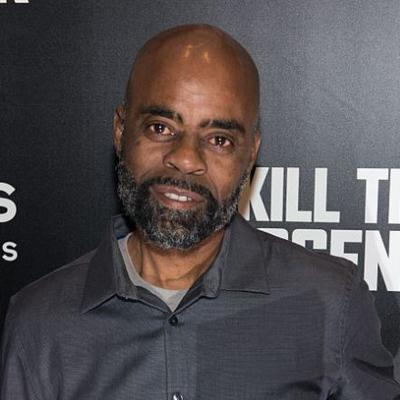Freeway Rick Ross at a Glance
What is Freeway Rick Ross’ Net Worth? The Rise and Fall of a Drug Kingpin
Introduction: The Freeway Legend
The name “Freeway” Rick Ross is synonymous with the crack cocaine epidemic of the 1980s. An American convicted drug trafficker, his story is a complex mix of ambition, crime, and redemption. While his peak net worth is debated, with claims ranging from $1 million to over $600 million, Ross’ impact on the drug trade and popular culture is undeniable. This article delves into the life and times of “Freeway” Rick Ross, exploring his rise, his fall, and his surprising comeback.
Early Life and the Unexpected Path of Tennis
Ricky Donnell Ross was born on January 26, 1960, in Tyler, Texas. At the age of three, he moved to Los Angeles with his mother, Annie Mae Mauldin, and his father, Sonny Ross. Growing up in the neighborhoods under Interstate 110, also known as the “Harbor Freeway,” some believe this is where he got the “Freeway” nickname. The other story is that it was because of his real estate holdings along the freeway.
Beyond the streets, a surprising element shaped Ross’ early life: tennis. He was a dedicated player, playing daily. He wasn’t a natural athlete, but he worked hard, which allowed him to earn a spot on his high school team. His talent on the court even led to a potential scholarship offer from Cal State. Sadly, his illiteracy became an obstacle and he never made it to college. But tennis was an escape and provided focus.
His mother’s arrest for the murder of his uncle marked a turning point, pushing him towards the criminal underworld.
The Criminal Empire: Building a Cocaine Dynasty
Unable to continue with tennis, Ross entered the world of crime. He started as a part-owner of an auto chop shop before getting involved with cocaine. He connected with Henry Corrales, his first supplier, and soon was introduced to Oscar Danilo Blandon Reyes in 1984. By the mid-1980s, “Freeway” Rick Ross had built a massive drug empire. He expanded his business across the nation and started dealing with Columbian drug cartels.
Ross invested his profits into both legitimate businesses and lavish lifestyles. He bought a house with a significant amount of cash, wore a bulletproof vest for protection and invested millions into a tennis training program for young teens. At his peak, his drug operation was reportedly earning up to $3 million per day, making him one of the most successful drug traffickers of his time. But his empire’s reach extended beyond just his drug business; it was also used to fund the Contra rebels, which was organized in part by the CIA.
By 1985, the Los Angeles Sheriff’s Department had created the “Freeway Ricky Task Force.” Despite facing pressure from law enforcement, Ross managed to evade capture for years, aided by widespread corruption within the police force.

Getty
CIA Connection, Legal Battles, and Imprisonment
Ross’s criminal activities eventually caught up with him. In the late 1980s, he faced drug trafficking charges related to the seizure of nine kilos of cocaine linked to his organization. Initially, Ross provided testimony against corrupt police officers, resulting in a reduced sentence. However, his former business partner Blandon turned on him, providing further information that led to a life sentence.
Imprisonment, however, marked a turning point. Ross dedicated himself to education and personal growth behind bars. He spent countless hours in the prison library, overcoming his illiteracy and reading over 300 books. He focused on self-help and entrepreneurship. He also rediscovered his love for tennis and even played with other inmates. But his most significant achievement was his self-education on the legal system which led to his appeal.
After a long legal battle, his life sentence was reduced to 20 years. He was released from prison in 2009.
Rediscovery and the Book: A New Chapter
After his release, Ross worked on an autobiography that was released in 2014. The book, “Freeway Rick Ross: The Untold Autobiography,” offered readers an inside look at his life and his transformation. It received strong reviews.
Media Appearances: From Documentary to Podcasts
After his release, Ross embarked on a new career as a public figure. He made numerous public speaking appearances and also appeared in various media. He was featured in the 2015 documentary “Freeway: Crack in the System,” which received an Emmy nomination. He also became a frequent guest on podcasts like “The Joe Rogan Experience.” His appearances shed light on the crack cocaine epidemic, the drug trade, and his personal experiences.
The Rick Ross Name Dispute: A Legal Battle
In 2010, “Freeway” Rick Ross sued rapper William Leonard Roberts II, better known as the rapper “Rick Ross.” The rapper’s stage name was inspired by the former drug trafficker. “Freeway” Rick Ross claimed copyright infringement. Despite seeking $10 million in compensation, the court dismissed his case due to First Amendment rulings, after a long series of appeals.
Conclusion: Legacy and Lessons Learned
“Freeway” Rick Ross’ story is a complex saga of crime, punishment, and transformation. His impact on the crack cocaine epidemic and his role in shaping the drug trade of the 1980s are undeniable. His journey from the streets of Los Angeles to a life of imprisonment and finally, to a life of redemption offers lessons about the consequences of crime, the importance of self-improvement, and the power of resilience. While his net worth is a subject of debate, his legacy continues to resonate, prompting discussions about the war on drugs, mass incarceration, and the human capacity for change.

